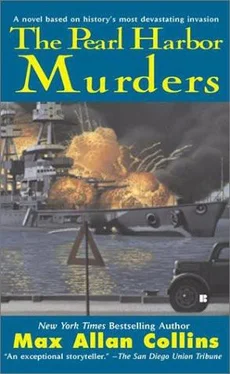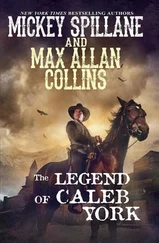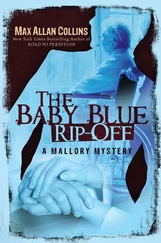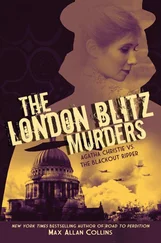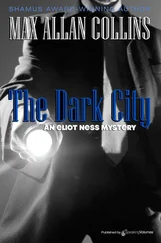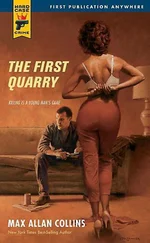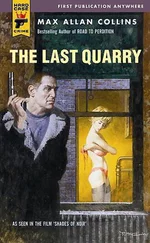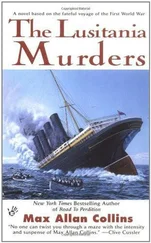Max Collins - The Pearl Harbor Murders
Здесь есть возможность читать онлайн «Max Collins - The Pearl Harbor Murders» весь текст электронной книги совершенно бесплатно (целиком полную версию без сокращений). В некоторых случаях можно слушать аудио, скачать через торрент в формате fb2 и присутствует краткое содержание. Жанр: Криминальный детектив, на английском языке. Описание произведения, (предисловие) а так же отзывы посетителей доступны на портале библиотеки ЛибКат.
- Название:The Pearl Harbor Murders
- Автор:
- Жанр:
- Год:неизвестен
- ISBN:нет данных
- Рейтинг книги:5 / 5. Голосов: 1
-
Избранное:Добавить в избранное
- Отзывы:
-
Ваша оценка:
- 100
- 1
- 2
- 3
- 4
- 5
The Pearl Harbor Murders: краткое содержание, описание и аннотация
Предлагаем к чтению аннотацию, описание, краткое содержание или предисловие (зависит от того, что написал сам автор книги «The Pearl Harbor Murders»). Если вы не нашли необходимую информацию о книге — напишите в комментариях, мы постараемся отыскать её.
The Pearl Harbor Murders — читать онлайн бесплатно полную книгу (весь текст) целиком
Ниже представлен текст книги, разбитый по страницам. Система сохранения места последней прочитанной страницы, позволяет с удобством читать онлайн бесплатно книгу «The Pearl Harbor Murders», без необходимости каждый раз заново искать на чём Вы остановились. Поставьте закладку, и сможете в любой момент перейти на страницу, на которой закончили чтение.
Интервал:
Закладка:
In less than half an hour, in a peacetime attack unparalleled in the modem world, Japan had delivered the worst Naval defeat in American history.
Thick black smoke draped Pearl Harbor, where all seven battleships moored at Ford Island had suffered damage, all hit by one or more bombs. In the overturned hull of the Oklahoma, most of the crew remained imprisoned, while others were trapped in the capsized Utah; rescue efforts in either case were hampered by continual strafing, until the silver planes of the Rising Sun finished their runs.
In the lull that followed the first wave of attack planes, the Americans worked frantically to prepare in the event of another blow-and one was coming: a second wave of 169 fighters and bombers crossed the northern coast of Oahu at 8:40 a.m.
Fifty-four high-level bombers and thirty-one fighters streaked toward Hickam Field and Kaneohe Naval Air Station and other bases, seeking more American planes on the ground to blow up, often strafing civilian vehicles and residential areas, apparently just for the sheer hell of it. Eighty-one dive bombers prowled for any surviving warships in the harbor, with ships awaiting repairs becoming additional targets-like the flagship Pennsylvania, and the destroyers Downes and Cassin, all in Dry Dock #1.
During this second attack, however, the Japanese pilots met stronger American resistance, and had to deal with billowing black smoke, a cover of their own raid's creation, obscuring their targets. The commander of the second wave of fighters, encountering fiercer ground fire than he'd anticipated, wound up crashing his Zero into a flaming hangar; and efforts to sink the fleeing battleship Nevada, to seal off the harbor with a mass of steel, proved unsuccessful.
Small victories, in so large a defeat.
With the exception of the occasional scurrying Oriental, disappearing down an alley or into a doorway, the streets and sidewalks of Chinatown were deserted. The rows of shops and cafes were as abandoned as an Old West ghost town, lacking only tumbleweed; the hustle and bustle of the Aala Market-where Sunday was just another day, any ordinary Sunday, that is-replaced with an eerie silence, deserted stalls filled with fresh fish whose dead faces stared with mute curiosity, as if to say, Where is everybody? Under a sky black with storm clouds of war, the smell of burning could be detected: not the acrid stench of fuel-oil fires from the harbor, but the crackling scorch-scent of refuse disposal, mingled with the unmistakable smell of fear. All around Chinatown, in metal drums or (as at the Consulate) washtubs or in backyard bonfires, issei and nisei were burning books written in the Japanese language, as well as Rising Sun flags and pictures of the emperor and photos of family members in Japan, even apparel like kimonos and getta; they were burying samurai swords and family heirlooms in their backyards-doing their frantic best to nullify any signs of Japanese influence and culture in Honolulu.
Burroughs found in Japanese-dominated Chinatown nothing to confirm the long-held local apprehension that-in the case of war with Nippon-Oahu's Japanese would come charging into haole neighborhoods brandishing guns or even samurai swords. Nor was there any sign of them skulking off to plant dynamite satchels and mines under bridges and piers or at military installations and electric lines. And predictions that your own maid, your neighbor's houseboy, the cop on the beat, the farmer down the road, the nisei Hawaii Territorial Guard members, would band together against "Americans" (which they of course were themselves) hardly seemed to be materializing.
The distant echo of explosions provided a thunderous backdrop as Ed Burroughs and his son walked by the sampan dock, where the blue boats bobbed, unattended.
"So much for a fifth column," Burroughs said to Hully, looking around at the desolation, as they approached the small grocery near the Aala Market.
"I'd feel better about this," Hully said, clearly a little nervous, "if Agent Sterling were at our side."
Burroughs held up his palm, where the tiny German automatic nestled. "We'll be fine. Sterling has his own job to do."
"Well, the door's open, anyway," Hully said, and brushed aside the hanging black beads and gestured, politely, for his father to go in first.
The writer stepped inside, Hully right behind him. The wooden storefront was unattended; the place had a curious fragrance, similar to incense-though to Burroughs the unfamiliar scent suggested decay. His son had told him about the shop, but Burroughs was not prepared for how little the "grocery" had to do wife his American preconceptions. He glanced around at the walls of shelves lined with jars and baskets of strange herbs, roots, dried seaweed, and other exotica.
"I guess he's out of Ovaltine," Burroughs said dryly.
With his left hand, Burroughs slapped the "Please Ring" bell on the counter, which stretched along the left of the shop.
A door, opposite the beaded one they'd come in, cracked open, apparently from a rear storage area.
"Shop is closed," Yoshio Harada said. Then he recognized them, and the grocer stepped into the storefront, closing the storeroom door behind him. He half bowed. "Burroughs- san … Burroughs- san ," he said, acknowledging them both.
"The door was open," Burroughs said, nodding toward the beaded entry. "Sorry to drop by unannounced, but this is an extraordinary morning, wouldn't you say, Mr. Harada?"
Nodding again, the diminutive, trimly mustached man-in a white shirt, grocer's apron, blue trousers, and sandals-shuffled behind the counter at the left; the shelves rising behind him provided a bizarre backdrop of gnarled roots, shark fins and seahorse skeletons.
"A terrible day." Harada was hanging his head. "I am ashamed to be Japanese on this day."
"No kidding?" Burroughs leaned a hand against the counter; his other hand, with the little gun, was behind his back. "I heard you used to have the emperor's picture on display."
Head still bowed, he gestured with both hands, as if disgusted. "I threw it away, many weeks ago. We work so hard to be accepted-to be good American. In one morning, all is undone. I am angry at Japan."
A faraway explosion seemed to punctuate his sentence.
The little grocer shook a fist at the sky. "Dirty Japs!"
"Not bad," Burroughs said, chuckling. "If Weiss-muller was as good an actor as you are, Harada, I'd be a happy man."
Harada looked up at the writer, blinking. "Who? What?"
Moving closer to the counter, Hully went into their prepared spiel. "We've just come from the Japanese Consulate, Mr. Harada. General Consul Kita says you and Morimura are buddies."
Harada frowned in apparent confusion. "I know no one named Morimura."
"How about Yoshikawa?" Burroughs asked, innocently. "A rose by any other name… You see, I thought, what with bombs dropping and all, you might be just the guy to help get the vice consul out of the limelight."
The grocer shook his head. "I know nothing of what you speak."
"Well," Burroughs said, "to tell you the truth, we were bluffing. Kita didn't mention your name. Matter of fact, I doubt Kita even knows your name, unless the Consulate buys seafood and vegetables from you."
"They do not."
"After all, Kita's not the espionage agent-he'd likely be kept out of the know, for security reasons. It's Morimura-that is, Yoshikawa-who's the spy in the woodpile."
Harada's frown no longer seemed confused, though his words continued down the path of denial: "I understand none of what you say."
"There's no fifth column in Oahu," Burroughs said with a grin, which quickly vanished. "But there is a tiny network of real spies. That radiophone call was a signal that this Sunday would make a fine morning for a surprise party. Your niece knew something was up- more importantly, she knew you were an agent, just like Otto Kuhn, and Morimura."
Читать дальшеИнтервал:
Закладка:
Похожие книги на «The Pearl Harbor Murders»
Представляем Вашему вниманию похожие книги на «The Pearl Harbor Murders» списком для выбора. Мы отобрали схожую по названию и смыслу литературу в надежде предоставить читателям больше вариантов отыскать новые, интересные, ещё непрочитанные произведения.
Обсуждение, отзывы о книге «The Pearl Harbor Murders» и просто собственные мнения читателей. Оставьте ваши комментарии, напишите, что Вы думаете о произведении, его смысле или главных героях. Укажите что конкретно понравилось, а что нет, и почему Вы так считаете.
